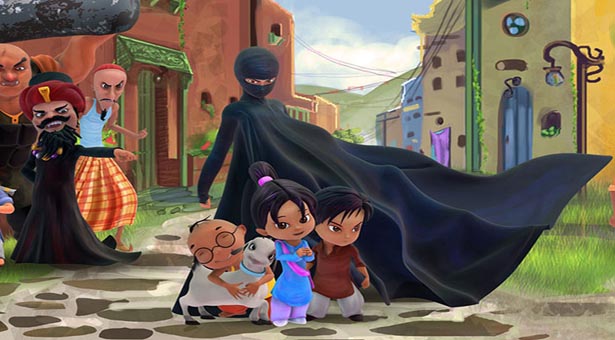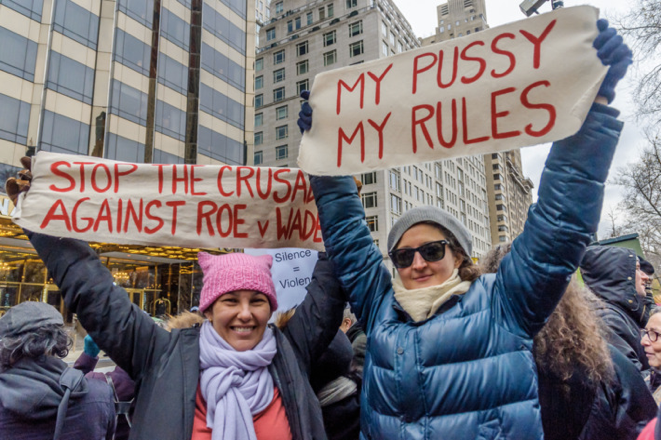By: Shuchi Goyal
Earlier this summer, a children’s television show in Pakistan debuted the nation’s first superheroine. At first glance, this newcomer has little in common with her Western predecessors. Those superheroines of yesteryear customarily donned sleek leotards or star-spangled bodysuits before saving the world. This superheroine of Pakistan, however, masks her identity by covering her entire body except her eyes with a loose burka, from which both she and the show derive their name, “Burka Avenger.”
Created by Pakistani pop star Haroon Rashid, Burka Avenger features in its titular role a soft-spoken but determined teacher named Jiya, who hails from a small fictional village called Halwapur in a valley of Northern Pakistan. She teaches at the all-girls’ school in the village, and both male and female students admire her. However, the village’s peace is often disrupted by the mischief of the corrupt local politician, Vadero Pajero, and a sinister sorcerer, Baba Bandook. On these occasions, Jiya changes out of her regular salwar kameez and instead dons a black burka, becoming Burka Avenger and fighting to restore harmony to the Halwapur.
Though dressed differently from the traditional superheroine, Jiya encourages the same values of freedom and fairness for her students and for the other villagers as Wonder Woman did for American civilians. For example, in the show’s pilot episode, after thwarting Vadero Pajero and Baba Bandook’s attempt to close the girls’ school in the village, Burka Avenger reminds students that “whether you are a boy or a girl, education is your right.” Other episodes deal with issues such as discrimination, child labor, and sectarian violence. Beyond the obvious morals stated at the end of each episode, even Burka Avenger’s fighting style is indicative of the show’s emphasis on education; her choice weapons are not whips and freeze rays, but books and pencils, a nod to the adage, “The pen is mightier than the sword.”
Messages such as these are essential as Pakistan attempts to overcome years of political and social instability. While Pakistan fares better in the United Nation’s measure of gender equality than most of its neighbors, including India, Pakistan, and Iran, only 40.3 percent of its females above the age of 15 are literate, compared to 68.6 percent of its males. Despite strides made by former Prime Minister Benazir Bhutto and current child activist Malala Yousafzai, female participation in the government also remains limited. In addition, the nation’s economy is primarily dependent on agriculture, and slow urbanization has also hindered its development. With some of the nation’s most liberal and creative thinkers collaborating to make the show possible, Burka Avenger is among several efforts in Pakistan to educate a younger generation. According to Rashid in an interview with the National Public Radio, “There’s a huge space for children’s entertainment in Pakistan . . . a lot of young children who don’t get the opportunity to get a great education need programming which is entertaining and also educational.”
Burka Avenger attempts to balance elements of modern Western culture with those of the traditional East. For example, rock and roll concerts are also a frequent source of excitement in Halwapur. However, Golu the pet goat, a supporting character in the show, demonstrates the prominence of rural lifestyles. Adult viewers of the show may also notice that the power wielded by the fundamentalist Vadero Pajero, is eerily suggestive of the continued influence of the Taliban in Pakistan.
Burka Avenger is refreshing in the way she represents justice and positive change, especially when she is compared to other famous female comic book characters such as Wonder Woman, Catwoman, or Black Widow, whose statuses as sex symbols arguably outshined their efforts as freedom fighters in their heyday.
Perhaps unsurprisingly, the show has received criticism for the portrayal of Pakistani females. But the show’s creators are more surprised that much of the criticism has come from feminist organizations from all around the world, specifically protesting against the use of the burka in the superheroine’s costume. One Pakistani journalist, Marvi Sirmed, called the burka “a symbol of submission of women” and “a tool for oppression.” According to Sirmed, the burka simply “cannot be used as a tool for empowerment.”
However, Rashid argues in the NPR interview that “[costumes like those of] Catwoman and Wonder Woman . . . certainly would not have worked here [in Pakistan]” which, in spite of recent progress, is still a conservative nation. He believes that the burka provides local flavor.
The stigma accompanying the burka in Western culture results more from skewed perspectives than gender oppression in Islam. The burka, a traditional garment worn that covers the entire body except the eyes, allows Muslim women to dress modestly in public. Today, many Arab countries, including Pakistan, allow women to choose whether or not they want to wear the burka. Women based their decisions on individual morals and interpretations of the Koran, and this form of religious expression is no different than, say, wearing a necklace with cross for a pendant. For Jiya, who does not wear a burka during her day job, the dress actually represents empowerment because she can choose when she will or will not wear it.
The controversy surrounding the burka in Burka Avenger is disappointing for more reasons than one. Critics obsessed with attacking superficial aspects of the show like a character’s clothing have ignored its far more important positive messages and its potential to motivate Pakistani youth to apply the heroine’s lessons in real society.
Although Pakistan has struggled through political turmoil and a stagnant economy over the last three decades, many people believe that it still has the potential to become a major regional power. Burka Avenger, though she acts from behind a television screen, may be just the push the younger generation needs to help its country stride toward a new beginning.



